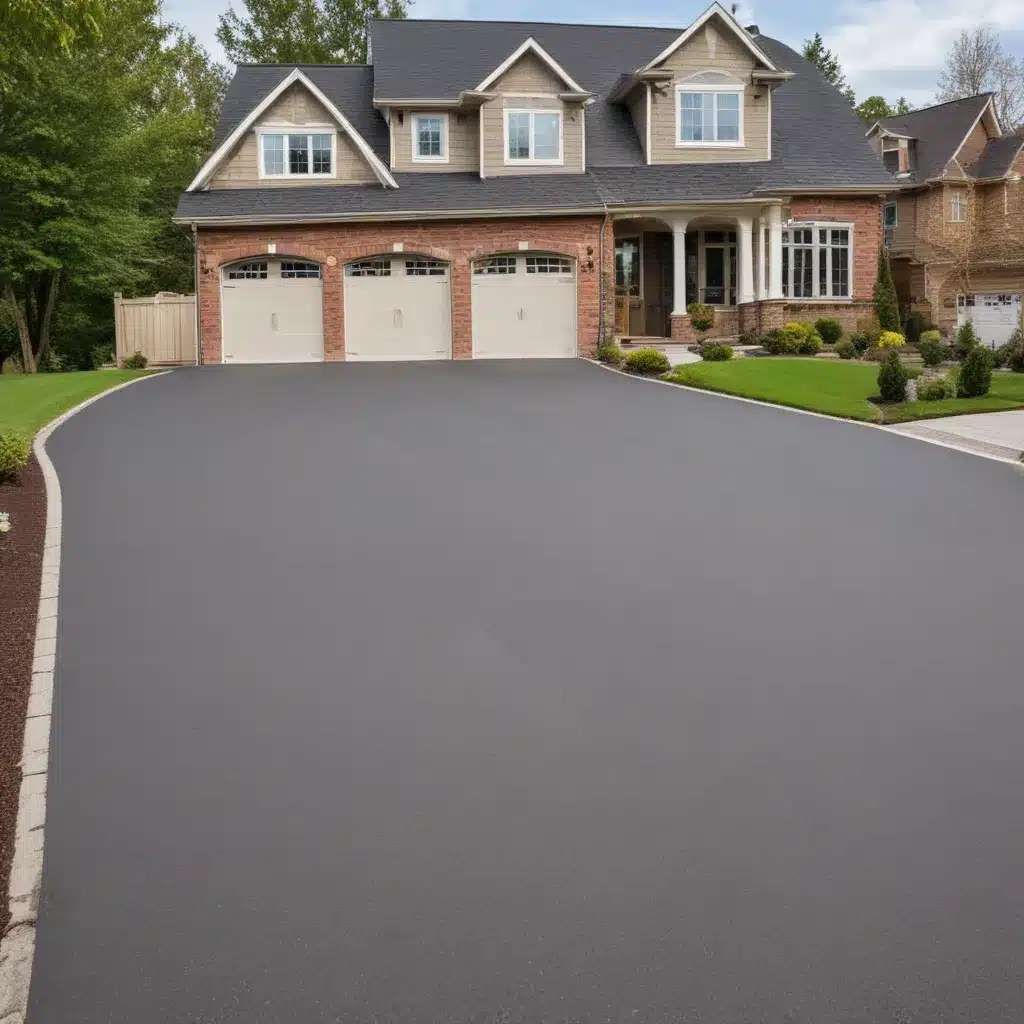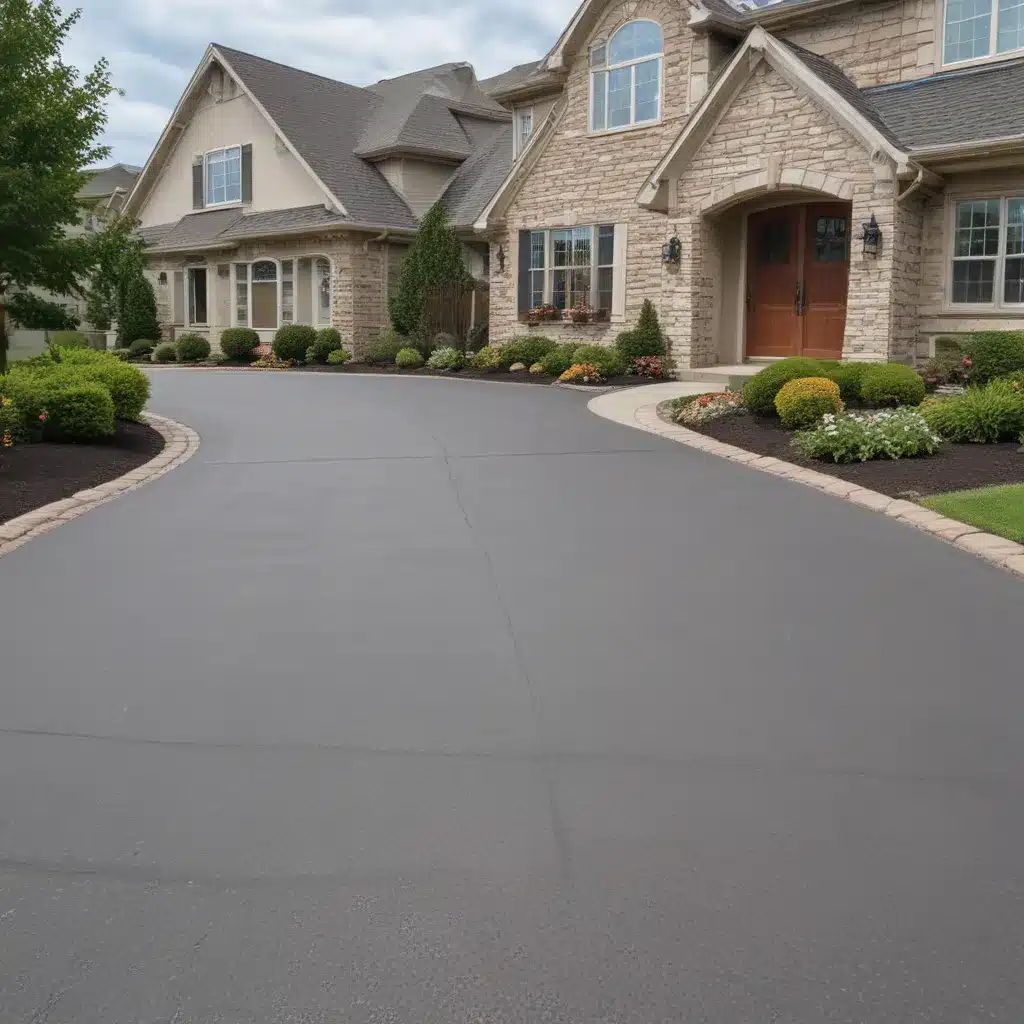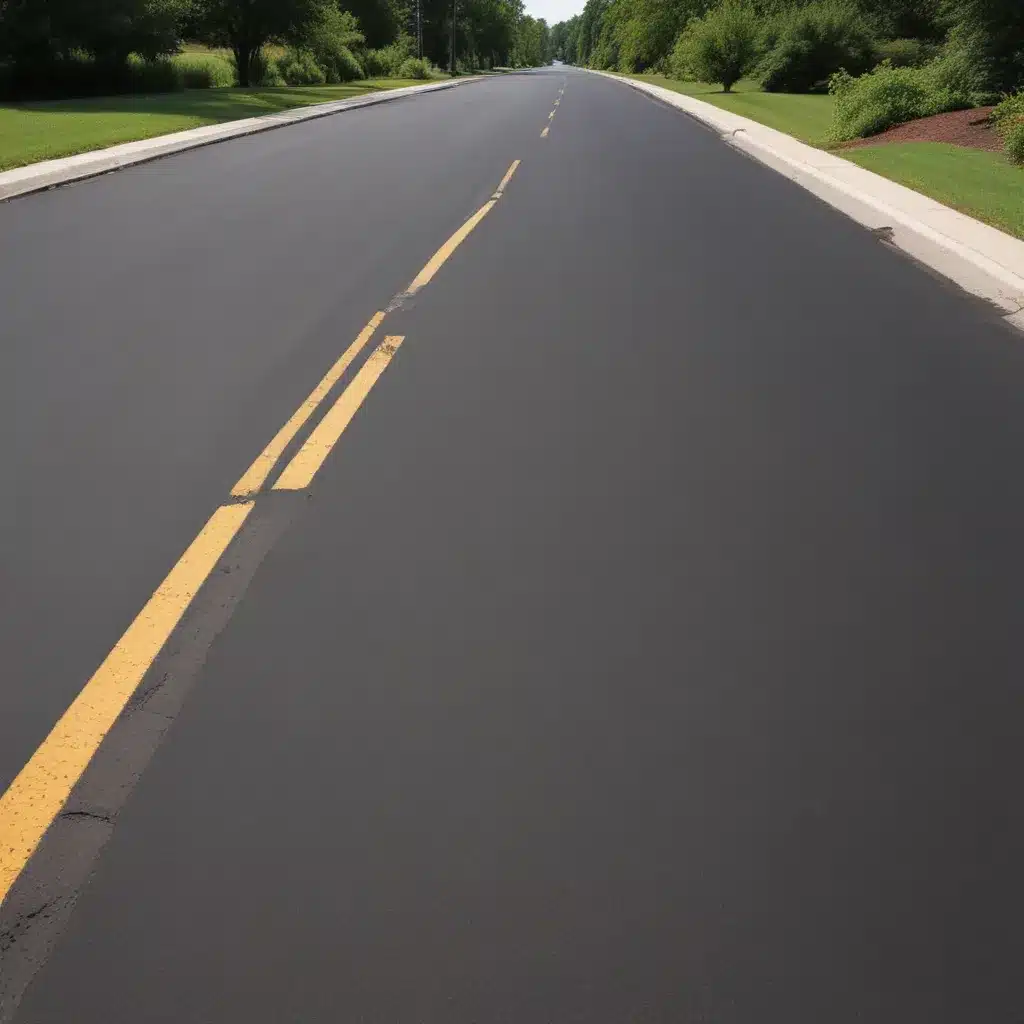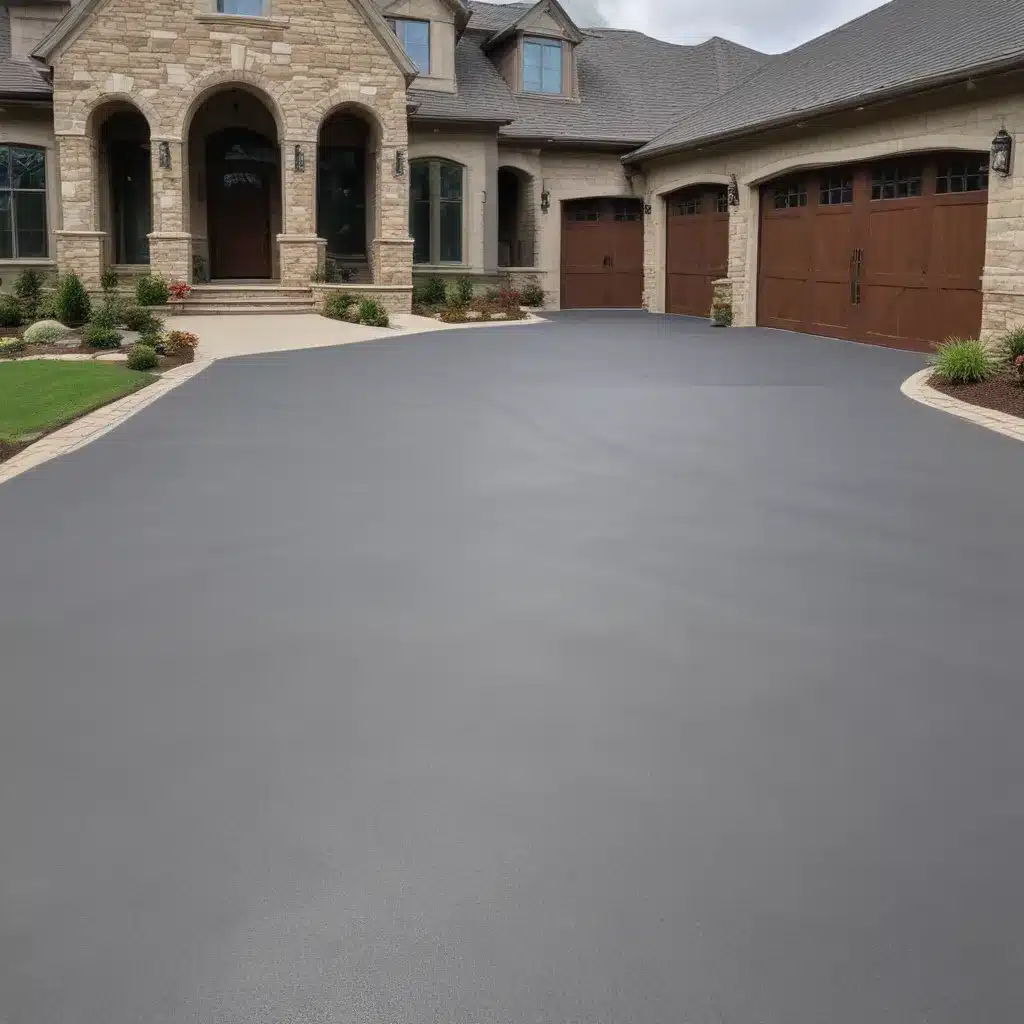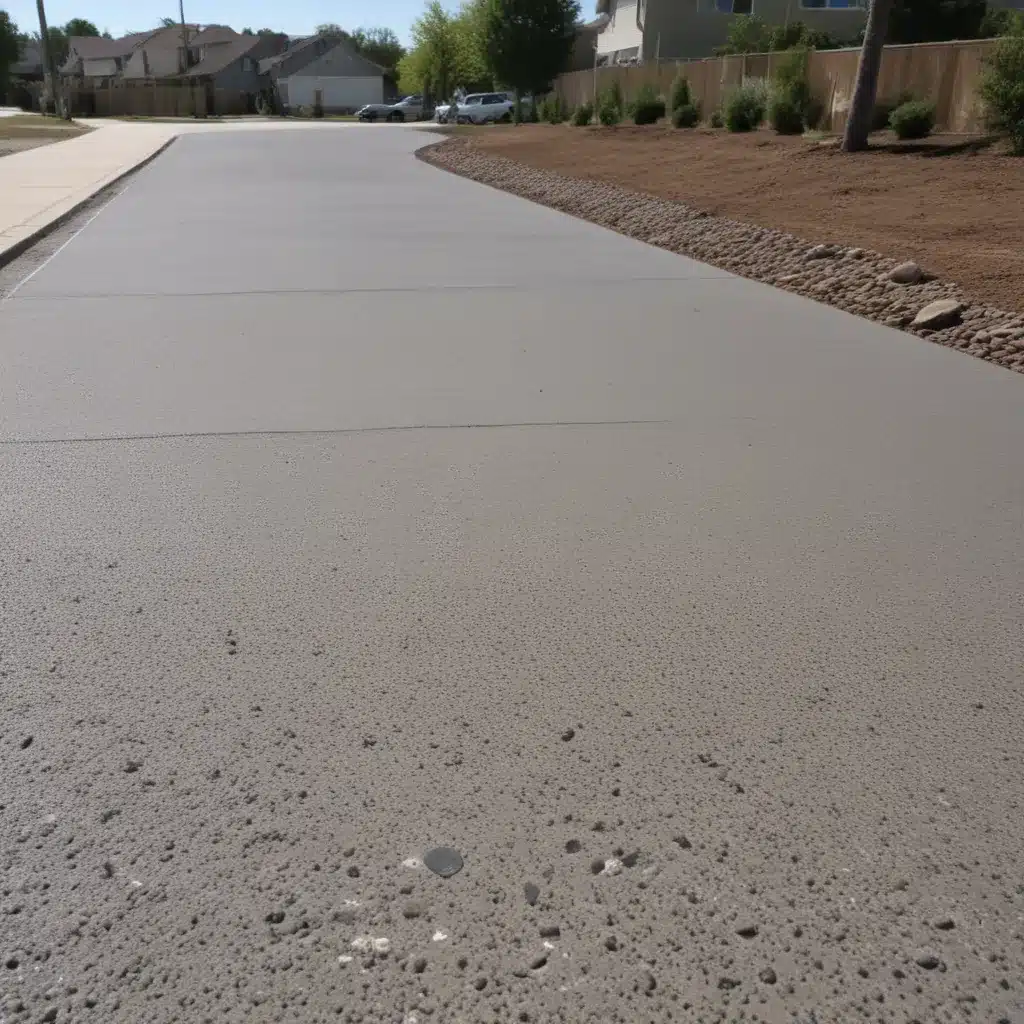The Driveway Dilemma: Finding the Perfect Fit for Your Home
As a homeowner, the driveway is often an afterthought – until it starts causing headaches, that is. Whether it’s crumbling under the weight of your car, turning into a skating rink during the winter, or just plain not fitting the aesthetic of your dream home, the driveway can be a source of endless frustration. But fear not, my friends! Today, I’m here to guide you through the process of choosing the perfect driveway for your climate and location, so you can wave goodbye to those driveway-related woes for good.
You see, I’ve been there, done that, and have the (metaphorical) t-shirt to prove it. When we first bought our house, the driveway was a hot mess – potholes the size of the Grand Canyon, weeds sprouting up like angry little sentinels, and a general air of neglect that just didn’t sit well with my perfectionist tendencies. After countless hours of research, trial and error, and more than a few colorful conversations with contractors, I finally landed on the driveway of my dreams. And let me tell you, the sense of satisfaction I felt when I pulled into that smooth, beautiful expanse of pavement was worth every second of the journey.
But I know not everyone has the time, patience, or DIY skills to go through the same trial-and-error process. That’s why I’m here to share my hard-earned wisdom, and hopefully save you from a few of the headaches I encountered along the way. So, grab a cup of coffee (or perhaps something a little stronger, depending on your driveway history), and let’s dive in!
Understanding the Factors: Climate, Location, and Your Lifestyle
When it comes to choosing the right driveway, there are a few key factors to consider, and the first two are all about your environment: climate and location.
Let’s start with climate. Are you dealing with harsh winters, scorching summers, or a temperate Mediterranean-esque paradise? The climate in your area is going to have a significant impact on the type of driveway material that will work best. For example, if you live in a region with heavy snowfall, you’ll want to steer clear of certain porous materials that can’t handle the freeze-thaw cycle. On the other hand, if you’re in a sun-drenched area, you’ll need to choose a driveway that can withstand the intense heat without cracking or fading.
And then there’s the matter of location. Are you nestled in the rolling hills of the countryside, or perched atop a steep incline in the city? The topography and soil composition of your property can also play a crucial role in determining the right driveway solution. A flat, well-drained area might be perfect for a classic asphalt or concrete driveway, while a sloped or clay-heavy lot might call for a more specialized material like permeable pavers or a gravel-based system.
But it’s not just about the physical environment – your lifestyle and usage needs also come into play. Are you the type who likes to keep things simple with a low-maintenance driveway, or do you relish the opportunity to flex your green thumb and create a more naturalistic, eco-friendly surface? Maybe you have a fleet of vehicles, including an RV or boat, that need to be accommodated. Or perhaps you’re all about that curb appeal and want a driveway that complements the architectural style of your home.
Whew, that’s a lot to consider, isn’t it? But fear not, my friend – I’ve got your back. Let’s dive a little deeper into the different driveway options and how they might (or might not) work for your unique situation.
Exploring the Driveway Materials: Pros, Cons, and Considerations
Asphalt Driveways
Let’s start with the old faithful – asphalt. This tried-and-true material has been a staple of driveways for decades, and for good reason. Asphalt is durable, relatively inexpensive, and easy to maintain, making it a popular choice for homeowners. But don’t let its simplicity fool you – there’s more to asphalt than meets the eye.
One of the key advantages of asphalt is its ability to withstand harsh weather conditions. It’s highly resistant to cracking and fading, even in the face of intense heat or freezing temperatures. And if you do encounter the occasional pothole or crack, asphalt is relatively easy and cost-effective to repair. Plus, the dark color of asphalt can help absorb heat, which can be a boon in colder climates where you want to melt snow and ice more quickly.
However, asphalt does have its downsides. It’s not the most environmentally friendly option, as the manufacturing process can release harmful emissions. And over time, asphalt can become susceptible to oil and gas stains, which can be a real eyesore. Additionally, the dark color can make the driveway feel a bit, well, dreary, especially if it’s not complemented by the right landscaping or architectural features.
So, who is an asphalt driveway best suited for? Homeowners in cold, snowy regions who value durability and ease of maintenance. If you’re looking for a no-frills, functional driveway that can withstand the elements, asphalt might be the way to go. Just be prepared to do a bit of upkeep and consider ways to enhance the aesthetic, like adding decorative borders or interspersing it with other materials.
Concrete Driveways
Next up, we have the stalwart of the driveway world: concrete. This sturdy, long-lasting material has been a go-to choice for homeowners for generations, and for good reason. Concrete is incredibly durable, resistant to weathering, and requires minimal maintenance, making it a practical and reliable option.
One of the biggest advantages of concrete is its versatility. Unlike asphalt, which is limited to a more uniform, monotonous look, concrete can be customized in a variety of ways. You can choose from a range of colors, textures, and patterns to create a truly unique and visually appealing driveway that complements your home’s aesthetic. And if you’re feeling particularly creative, you can even incorporate decorative elements like stamped or stenciled designs, which can add a touch of personality to your outdoor space.
But concrete isn’t without its drawbacks. For one, it can be a bit more expensive upfront than asphalt, and the installation process can be more labor-intensive. And while concrete is generally pretty hardy, it’s not immune to the occasional crack or chip, especially in areas with extreme temperature fluctuations or heavy vehicle traffic.
So, who is a concrete driveway best suited for? Homeowners who want a long-lasting, low-maintenance option that can be customized to their liking. If you’re looking to make a statement with your driveway and don’t mind the initial investment, concrete might be the way to go. Just be prepared to do some occasional patching and sealing to keep it looking its best.
Permeable Pavers
Now, let’s talk about something a little more environmentally friendly: permeable pavers. These innovative paving stones are designed with small gaps or openings that allow water to filter through, rather than running off and potentially contributing to stormwater issues.
One of the biggest advantages of permeable pavers is their eco-friendly nature. By allowing water to percolate into the ground, they can help reduce the risk of flooding, erosion, and other water-related problems. This makes them a great choice for homeowners who are passionate about sustainable living and want to do their part to reduce their environmental impact.
But permeable pavers aren’t just good for the planet – they can also be a visually appealing addition to your property. With a wide range of colors, shapes, and textures to choose from, you can create a truly unique and eye-catching driveway that complements your home’s architectural style. And because the gaps between the pavers allow for better drainage, they can be a practical solution in areas with poor soil or high groundwater levels.
However, permeable pavers aren’t without their drawbacks. They can be more expensive to install than traditional concrete or asphalt, and they may require more specialized maintenance, such as regular cleaning to prevent the pores from becoming clogged. Additionally, in areas with heavy snowfall, permeable pavers may be more susceptible to damage from snow plows or heavy equipment.
So, who is a permeable paver driveway best suited for? Homeowners who are environmentally conscious and want to incorporate sustainable features into their outdoor spaces. If you’re willing to invest a bit more upfront and are comfortable with a slightly higher maintenance regimen, permeable pavers could be a great choice. Just be sure to do your research and consult with a professional to ensure they’re the right fit for your climate and property.
Gravel Driveways
Last but not least, let’s talk about good old-fashioned gravel. This classic driveway material has been around for ages, and for many homeowners, it remains a go-to choice.
One of the biggest advantages of a gravel driveway is its affordability. Compared to other paving options, gravel is relatively inexpensive to install and maintain, making it a budget-friendly choice for homeowners on a tight budget. And because gravel is a natural, permeable material, it can be a great option for homeowners who are looking to minimize their environmental impact.
But gravel driveways aren’t just about saving money – they can also be a charming and rustic addition to your outdoor space. The sound of crunching gravel underfoot can be incredibly satisfying, and the natural, textured look of a gravel driveway can complement a wide range of architectural styles, from cozy country cottages to modern farmhouses.
However, gravel driveways do come with their own set of challenges. They can be more prone to weeds and uneven surfaces, which can make them less suitable for homeowners with mobility issues or who need a smooth, level surface for their vehicles. And in areas with heavy rainfall or snowfall, gravel driveways may require more frequent maintenance to prevent washouts or icy patches.
So, who is a gravel driveway best suited for? Homeowners who are looking for a budget-friendly, low-maintenance option that can add a touch of rustic charm to their property. If you’re comfortable with a bit of occasional upkeep and don’t mind the occasional weed or uneven surface, a gravel driveway could be a great choice. Just be sure to choose a high-quality gravel and consider incorporating edging or other stabilizing elements to help keep it looking its best.
Making the Final Decision: Balancing Your Needs and Preferences
Phew, that’s a lot of information to digest, I know. But now that you’ve got a solid understanding of the different driveway materials and their pros and cons, it’s time to put it all together and figure out which one is the best fit for your home and lifestyle.
The key is to really take the time to assess your priorities and needs. Are you most concerned with durability and low maintenance, or are you willing to put in a bit more effort to create a truly unique and visually appealing driveway? Do you live in a climate that requires specialized considerations, like heavy snowfall or intense heat? And don’t forget to factor in your budget – while it’s important to invest in a quality driveway, you also want to make sure it fits within your financial constraints.
Once you’ve taken the time to really think through all of these factors, it’s time to start exploring your options. I’d recommend reaching out to a few reputable contractors in your area and getting their professional input. They’ll be able to assess your property, understand your needs, and help you determine the best driveway solution. And who knows, they might even have a few creative ideas or design suggestions that you hadn’t considered.
And remember, the right driveway is out there waiting for you – you just have to be willing to do a little digging to find it. It might take some time and effort, but trust me, the payoff is well worth it. Imagine pulling into your driveway, your car gliding smoothly over the surface, and feeling a sense of pride and satisfaction that comes from having made the perfect choice.
So, what are you waiting for? Get out there and start exploring your driveway options! And if you need any help along the way, you know where to find me. I’ll be right here, sipping my coffee (or perhaps something a bit stronger), and ready to lend an ear or offer a few more of my hard-earned driveway insights.

